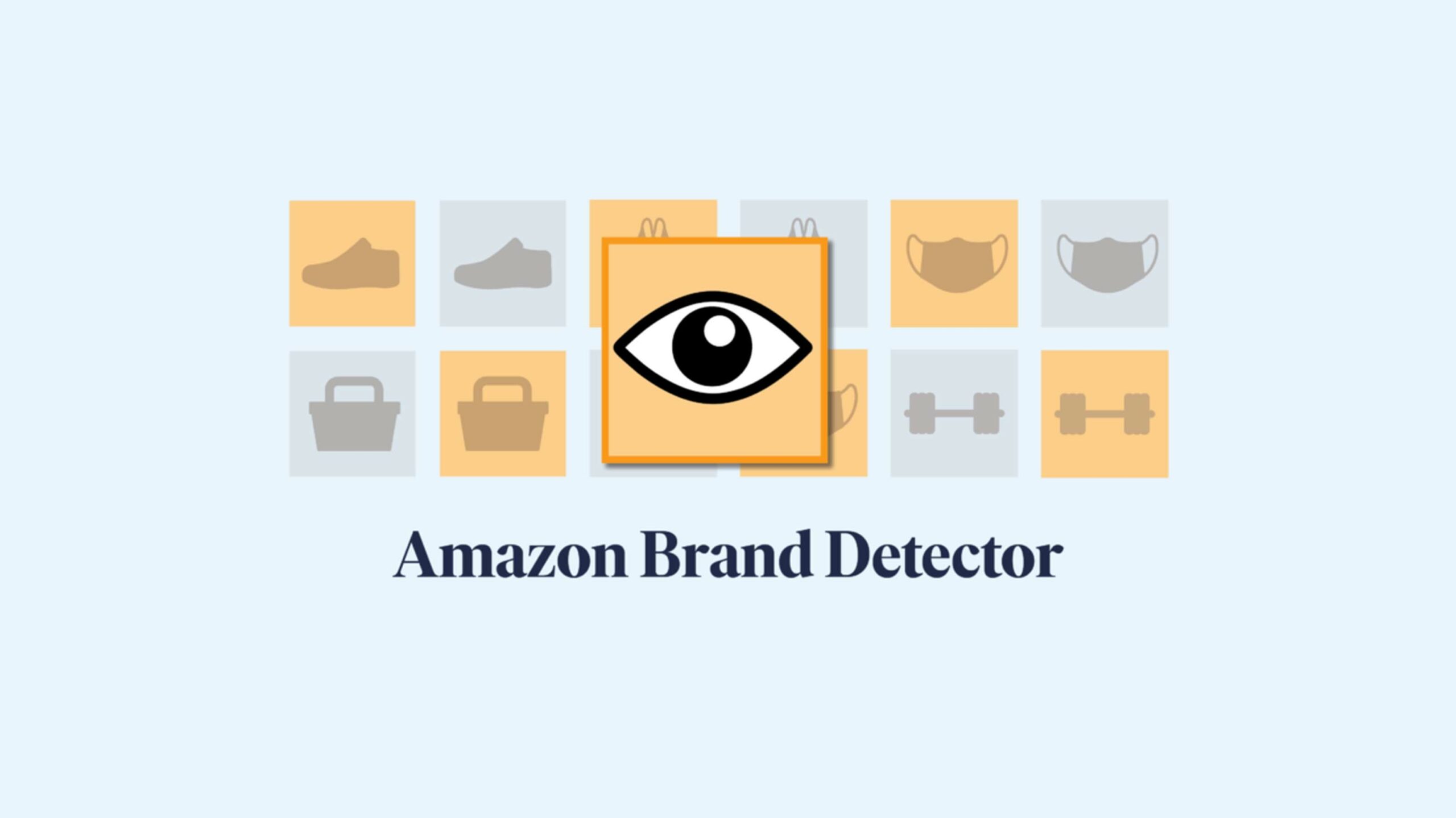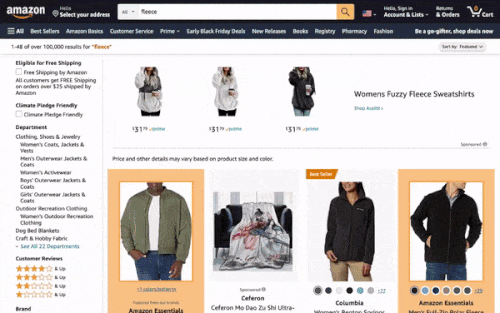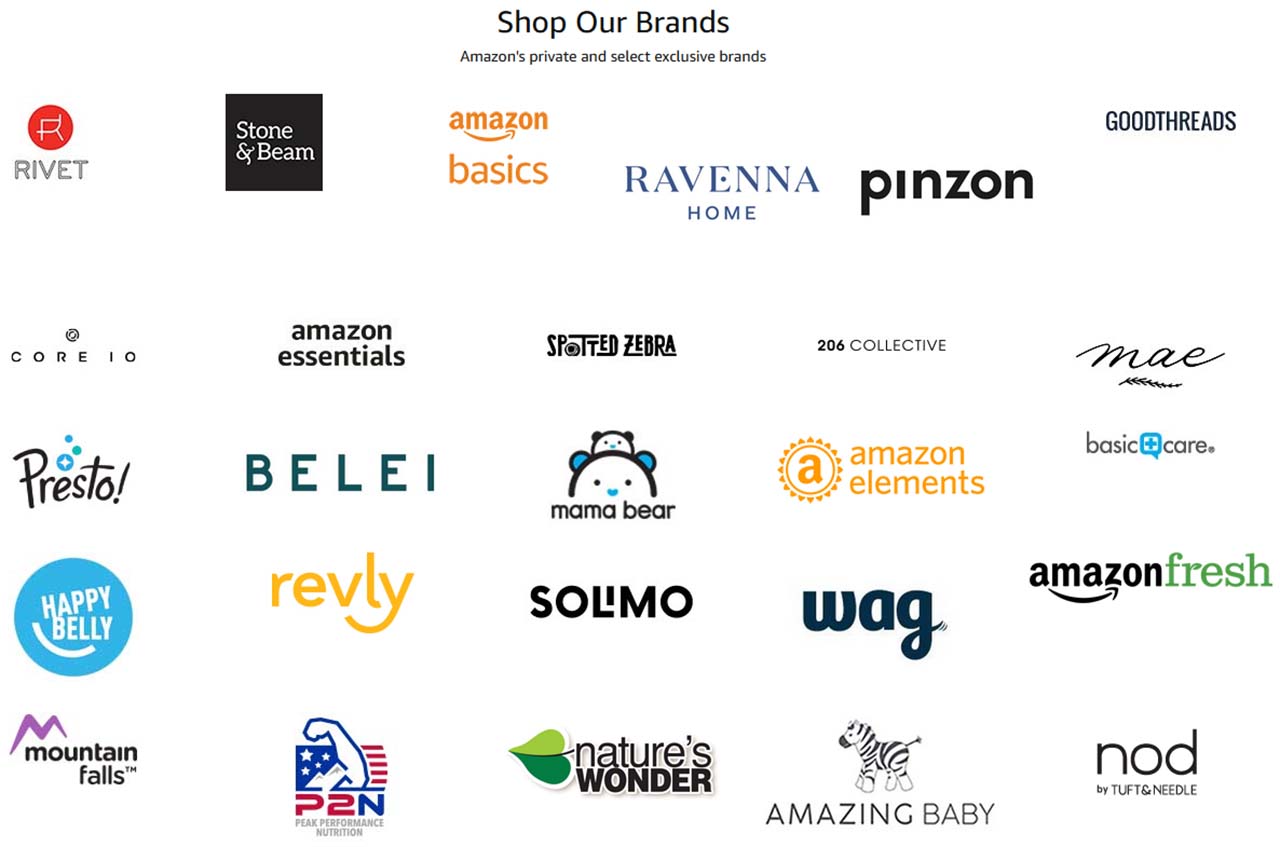
When shopping on Amazon, you’ll often see a mix of products sold by Amazon and sold by third parties on Amazon’s platform. Research from non-profit tech publication The Markup found that Amazon likes to place its products more prominently, often higher in search results than similar products with more, and better, reviews.
Unfortunately, it can be hard to tell which products are an Amazon brand and which aren’t when browsing the e-commerce platform. That’s where The Markup’s new ‘Amazon Brand Detector’ browser extension comes in: it can highlight Amazon brands in search results.
The Markup detailed how it gathered data for the browser extension, which involved running searches on Amazon and checking the ‘Our brands’ filter, using an undocumented API that shows all Amazon ‘our brands’ products for a given search and more. The result was the “largest and most comprehensive open access dataset of Amazon brand and Amazon-exclusive products,” but The Markup notes it’s not complete. The publication’s data set included over 137,000 unique products, but in 2019 Amazon told Congress that it sold approximately 158,000 products from its own brands.

Image credit: The Markup
It’s worth noting that Amazon does list some of its “private and select exclusive brands” on this webpage. Some of those are private labels owned by Amazon, while others are “curated selections” that are sold exclusively on the platform but aren’t necessarily operated by Amazon.
But, there are other brands — some described as “letter-soup” brands with names like ‘Weeso’ and ‘Ofeefan’ — and ones like ‘Daily Ritual,’ which isn’t on Amazon’s brands page but designates itself an Amazon brand on some of its product pages.
Amazon’s brands tend to crowd out products from other companies
The issue isn’t necessarily that Amazon has all these brands so much as how it impacts customers. Grocery stores, for example, have their own brands. However, all the brands usually end up in the same spot — all the cereal boxes will be in the cereal section. As The Verge puts it, items on the third page of search results are more hidden than those on the bottom of a shelf in a supermarket.

With any online search, whether Amazon, Google or other platforms, the first page of results is the most coveted because people tend not to go beyond that page. Amazon’s brands clog up that first page of results — space that could go to other brands with better reviews or higher sales numbers.
Customers might not care who’s selling these products. But for those who do like to know where their money is going (or who want to avoid handing Amazon more money than they already do), the Amazon Brand Detector extension could help.
The extension is free, available on Chrome-based browsers and Firefox, and The Markup says it doesn’t collect any data. You can learn more about it here.
Header image credit: The Markup
Source: The Markup Via: The Verge
MobileSyrup may earn a commission from purchases made via our links, which helps fund the journalism we provide free on our website. These links do not influence our editorial content. Support us here.


